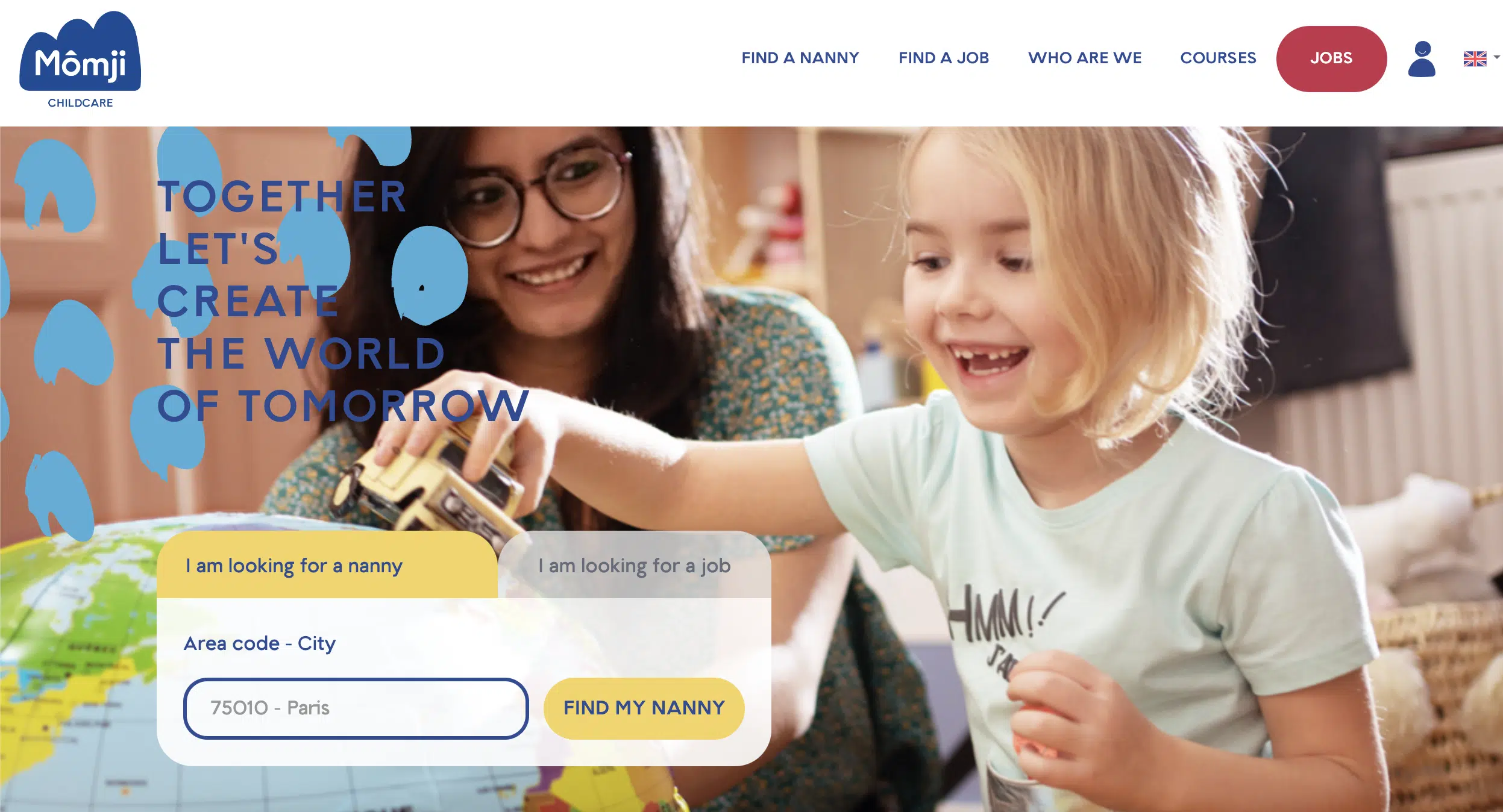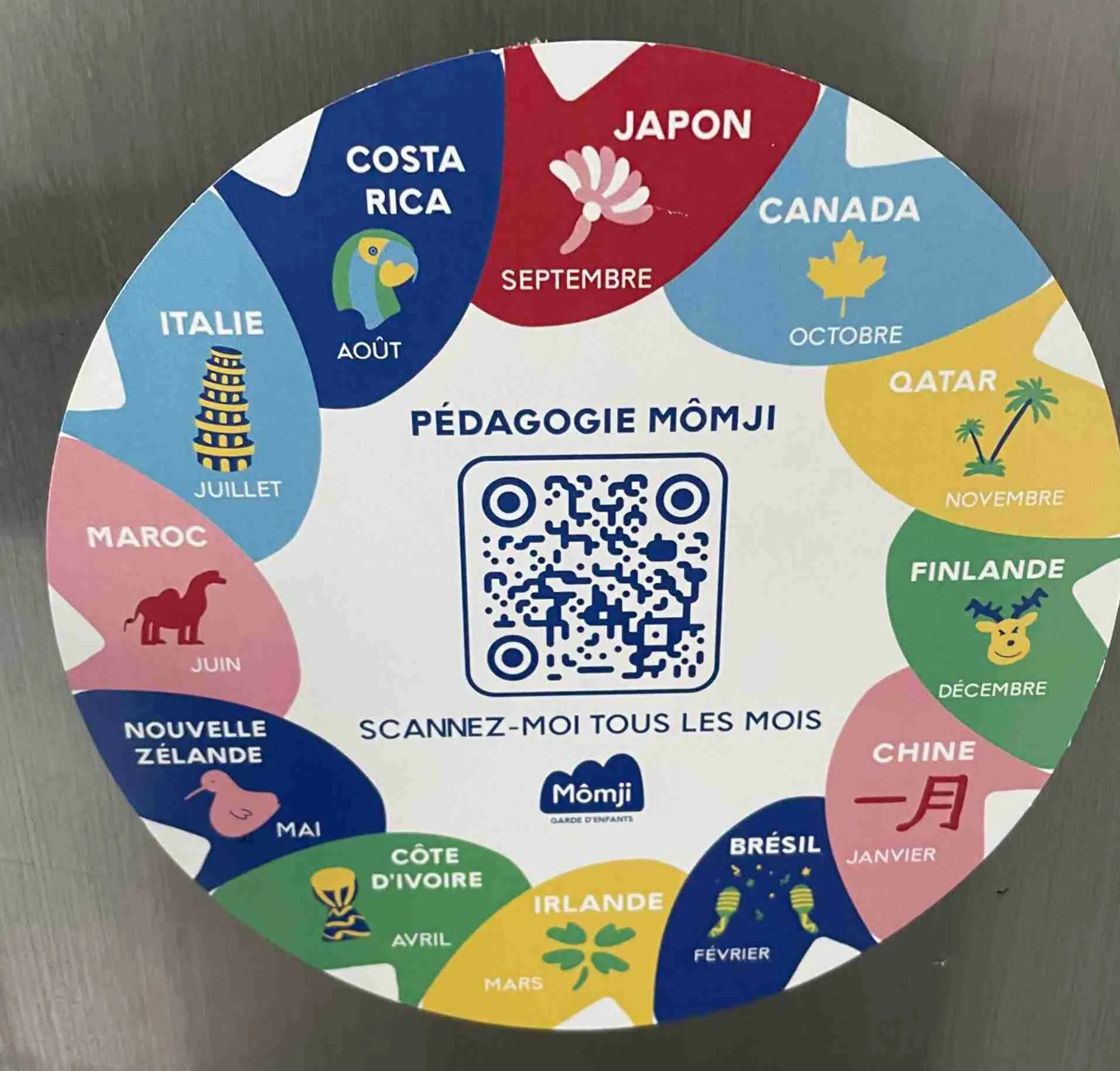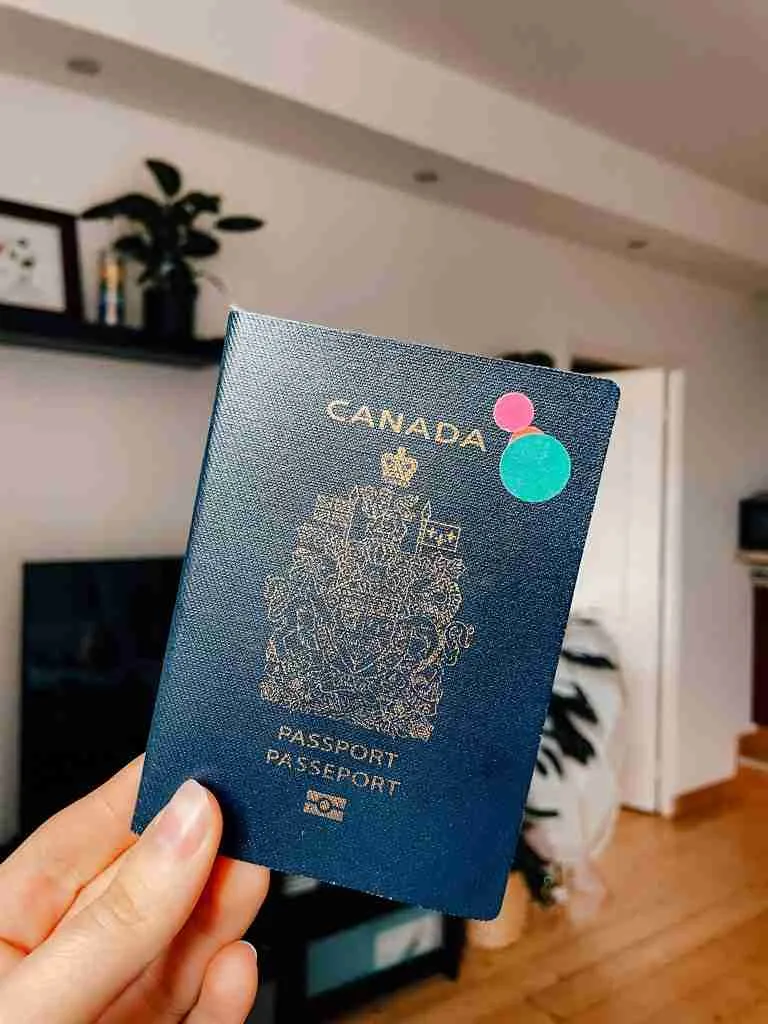Working as an English nanny in France (or au pair) is the easiest way to find work as an English speaker! And being a nanny is a great job for a Working Holiday Visa holder. You can get yourself set up quickly once you arrive – no prior contract is needed!
When I arrived and anxiously looked for work, I found that my choices were limited. I am someone who has conversational French but is not necessarily fluent and I haven’t been comfortable or confident enough to take the leap and work in French. So I searched for bilingual or even English job roles, and time and time again I was brought back to nannying (or babysitting as they refer to it in France).
For me, it was the logical choice – I have worked as a teacher and in daycares for years so of course why not be a nanny? To date, I have been working as a nanny for a year (since March 2022) with the same family!
Below, I outlined some of the questions I have been asked about what I do and how it works. When I first arrived in France, I found information and clarity to be quite limited. Hopefully, learning from my experience can make yours that much smoother!
Disclaimer: all of the information provided here is based on my own experience. There are of course exceptions depending on different families and I am not an ambassador of any agency in particular. For precise information, you can visit your agency’s website. The purpose of this article is to share my personal experience and answer questions to help others understand what it is like being an English nanny in France.

What is the difference between a nanny and an au pair?
Being an English au pair is a really popular option for working in France but isn’t necessarily the same thing as being a nanny or babysitter.
An au pair typically registers and signs a contract with their family before arriving in France. The family is also responsible for housing the au pair. This could mean staying in the same house as the family or them having other arrangements set up for you. They are also there to help you get set up and you typically earn less since they are responsible for housing you.
Each family will have different needs in terms of hours and what you will be responsible for. A family could want you to travel with them when on holiday. They could expect you to work weekends, before school or after school – it all depends. I have seen au pairs described as a “temporary family member”!
An au pair can also apply for a different visa than the Working Holiday Visa. Since I have not worked as an Au Pair in France, I do not have first-hand experience but you can learn more about that on the AuPairWorld website!
A nanny or babysitter does not live with the family nor is the family responsible for finding accommodations for you. An English nanny in France is similar to one in other countries – they are an employee! There are specific agencies out there that will hire you and help you find families! Below I will go over in more detail what my job is like.
Whom do I work for?
There are a few babysitting agencies in France such as Babylangues and Momji. I personally work for Momji as an English nanny in France. This particular company also employs English teachers (I am not a trained English teacher so I did not qualify to work as one. I do not have more information on that topic sadly!). If this is something that interests you, you can find more information here.
When I arrived in France, within 3 weeks I was already going on interviews to meet families – it was a really quick process! I highly recommend making sure your phone, bank and accommodations are settled before applying as you need this information when getting registered!
I completed an application online which was followed up by a phone and video interview. After I was officially approved and selected, I was given access to the online portal!

Here is everything you can find in the online portal:
📁 My Momji Journey (Important documents): The online portal is where you upload your important documents. I needed to upload a French Police Check, a copy of my visa and passport, a resume and my bank details.
🇫🇷 Job offers: You can think of it like a job posting board. There is a list of all of the jobs available across France, which you can organize based on your city and availability. All you have to do is simply browse through the choices. There is basic information provided for each family. For example, how many children or how many hours of work they can offer.
👩🏼🏫 My offers: Here you will find all of the offers you applied for or saved! This is also where you can access offers that were suggested to you by the agency.
📝 My Contracts: This is where your official paperwork concerning your contract is found. Ongoing or past contracts you can find here. You can also find other important documents like your DUE (declaration of employment) and the Momji healthcare policy.
📆 My Planning: When you have signed a contract and are working with a family this is where you can find your schedule. They will have already included your contracted hours but if you work extra in the month you can always send the agency an email and they will add that to your timetable.
💶 My Payslips: Pretty straightforward – this is where you can find all of your monthly payslips. I am paid once a month around the 13th-15th.
🛟 Support: Momji also provides resources to give you ideas and to help you out. Here, you can find training videos as well as some activities they send out monthly.
How do you get a contract?
After you’ve browsed through the job postings on the online portal and simply click ‘apply’ to the ones that would work best for you.
There were way more opportunities in Paris in comparison to other cities (when I first arrived, there were only 5-10 listings for Lille – where I’m based). There are also typically more listings available at the start of the school year.
I’d recommend when applying for contracts pay attention to the hours, where the family is located, the number of children and their ages. When I first arrived, I applied to everything possible and actually started with a family that didn’t work out for me. They were a bit far and when compared to the number of hours it wasn’t worth it financially.
After you apply for jobs, the families will contact you if they would like to meet (I was contacted by text and email). You and the family then arrange a time to meet. In the meeting, the family asked me questions and I met the kids. I saw their house and they introduced me to their daily routine. I also came up with my own questions.

Here are some questions you can ask:
-What are your expectations from me in terms of English?
-Do you have English resources at home?
-Have the children had experience with an English nanny before?
-What is their after-school routine? (Ex. homework? Activities? Schedule?)
-What are the important house rules? (Ex. Tv/internet times?)
-Do they have any allergies or diet restrictions?
-Where is the first aid kit? In case of emergency or illness, what would you like me to do?
-What is after-school pick-up like? (Where do I go? Who do I pick up first? Does the school know I am their nanny?)
*My family was also visiting a few months later and I would not be available for 3 weeks. So I wanted to let the family know in as much advance as possible. They had no issues with it!*
What are the hours like for English nannies in France?
In France, children are typically done school between 4-6 pm. Some kids have activities after school so it depends on the family. They also DO NOT have school the entire day Wednesday.
This means that if you are working with school-aged children, your hours will most likely be a maximum of around 18-25 hours (around 10 hours of work on Wednesday + 2-4 hours after school each day). This depends on each family’s needs. You might find it challenging to have a full-time schedule.
What I have seen most often, is that a family will either look for a full day Wednesday or some after-school shifts (sometimes a combination but rarely full both). You are of course allowed to work with multiple families to maximize your hours, as long as they don’t clash. And that’s where it can get tricky. I found it difficult to combine families in order to get the most hours possible (it’s tricky but technically not impossible!).
If you are qualified to work with children under the age of 3 then your hours can be more similar to a full-time schedule. I am not officially qualified to work with that age group therefore I could not apply for these positions.

School Holidays
Children are on holiday for 2 weeks in October, December, and April and around 2 months in the summer. You will most likely not work during these times. There are some instances where families will require help during these holidays however most of the time they have camp, are on vacation or are spending time with their grandparents.
Do you need experience working with children?
They advertise that you do not need experience with children to work with Momji. It of course helps your application and your ability to work with the kids but it isn’t necessary. The most important factor is your fluency in your language.
Are job roles only offered to English speakers?
There are plenty of families looking for nannies with different mother tongues such as Spanish or Mandarin. This depends on the specific family’s needs. Other language job offers to tend to be rare compared to English. But there are for sure opportunities for other languages!
What is your workday like as an English Nanny in France?
Afterschool
Each family is of course different and has their own extracurricular activities and routine after school. However, for the most part, they follow the same structure.
Most kids will have a snack around 4-4:30 pm (I have learned this is usually a sweet snack). And children typically have a bath/shower every day around 6 pm before their parents come home.
This means that if you are working an after-school shift, you will most likely be responsible for:
- Picking them up from school
- Giving them their afternoon snack
- Making sure they’re bathed and that they are in their PJs
Speak with the family about their expectations for after school. Some are fine if you guys just play games, some would prefer them to work on homework, and some prefer them to practice English – it’s always best to ask the family directly.

Wednesday
Wednesdays are typically a full day (sometimes no break unless the kids have nap time). This can be daunting and WAS daunting for me because that is a long time you need to keep the children occupied.
Here is how I structure my day:
What I decided to do was to prepare a schedule for us to plan our day. Each week I choose a theme and browse Pinterest to find activity ideas that fit the theme.
Typically, every Wednesday I have around 6 activity ideas. I include crafts, games, printouts, an English activity, a science activity and/or baking for our snack. To be clear, THIS ISN’T NECESSARY. This is what I felt would help me structure our day to make sure we had activities to keep us occupied. (This is probably my ‘teacher side’ coming out).
I typically send my list of activities (along with a list of any resources we might need) over to the mom the week before and she makes sure to have everything ready for us. Not every family will have the time or resources to do this but this is what has worked for us.
Each week, I write these activities out in a small schedule and bring it with me. I also rely on my phone timer which also helps us stay structured and transition from activity to activity.

So in general, on Wednesdays I am responsible for:
- Giving them breakfast
- Having plenty of activities to keep us busy for the entire day. Activities can also mean us going to the park or the library!
- Preparing lunch for us
- Planning English-based activities/games – the kids are always proud to show what they learned at the end of the day
- Preparing/making them their afternoon snack – we sometimes bake something!
- Making sure they’re bathed and that they are in their PJs
- Giving them their dinner (from time to time)
Pro Tip: Something I have also introduced is a rest/break time after lunch. I set the children up with a quiet activity or book in their own rooms in order for everyone (myself included) to have some quiet time. I’d recommend something similar if you are working the full day. For the longest time, I would power through but it can get really exhausting. If you can have a break even if it’s 30 minutes, that will hopefully help you!
Is it difficult?
Communication can be frustrating
I would say the HARDEST part of working as an English nanny in France is keeping up with speaking English. What I mean by that is that communication can be frustrating. They might only know some English words here and there. And if your French is not strong this can be challenging for both you and them.
I personally have a conversational level of French so I can understand and reply to them in French. You should AVOID doing this because they should focus on their English. However, it has been really difficult to get the kids to speak in English (which I don’t blame them!) especially since they know I can understand some French.
The agency advises to not let the kids know your level of French but it depends on each family’s preference. For example, the family I work with had a nanny before me and she spoke 0 French and the kids found it too challenging. It is equally frustrating for them to not be able to communicate properly. This is why she asked if I spoke to them 50% in English and 50% in French. After a year, I am starting to speak to them more and more in English.
Even still, it is very hard to make sure they speak English consistently because you can’t force them! And when I speak too much English, they get frustrated. So you really have to find that middle and just every day try your hardest. But believe me, I know how hard it can be. I work with wonderful kids and I get along well with the family but even still, they are reluctant and shy.

The kids will challenge you
One other thing I will mention is that the kids in France will challenge you. Especially at first. They talked about this in the online training to prepare nannies to stay firm in their expectations and rules. Like any kid, they can misbehave and act up, especially with someone new. This is also why I always ask the parents to be detailed about house rules so I know where to stand firm.
Funnily enough, at times I found working with kids in their own homes with their siblings more difficult than managing kids in a classroom. You are in their element, their space and of course, siblings will also bicker and fight – something I hadn’t really experienced in a classroom. It just takes some time to set up routines and rules with the kids for them to see you as an authority figure in their own home.
Summary of being an English Nanny in France:
✅ Working as a nanny is a great way to enjoy a relatively flexible schedule
✅ If you’re looking for an English-speaking job, this is a very quick and easy way to find a job
✅ You spend your days having fun with kids

❌ A big downfall is the hours, I have not been able to build a full-time schedule for myself
❌ You also earn close to the minimum wage. If you’re supporting yourself, you might need other part-time work to supplement your earnings!
❌ Wednesdays can be exhausting and communication in English with French children can be frustrating
❌ I have to spend time planning and preparing activities and ideas (even though it isn’t necessary)

Nevertheless, I have been working as a nanny for a year with a family I work very closely with! I personally find it rewarding and a great way to use skills I already have!
I hope this FAQ was helpful to you! If you had any questions about being an English nanny in France, I hope you found the answers here!
Any more questions? Drop them down below – hopefully, I can help!















